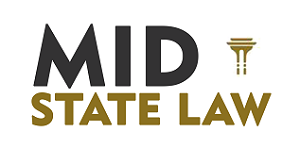Navigating the realm of firearm ownership can be complex, especially when dealing with items regulated under the National Firearms Act (NFA). That’s where NFA Gun Trusts come into play, offering a structured and legal method for acquiring and managing NFA firearms. These trusts allow us to collectively possess and manage firearms like suppressors, short-barreled rifles, and other items without the bureaucratic hurdles every step of the way.
In a world where individual ownership can present challenges in terms of compliance and transfer rights, Gun Trusts provide a flexible solution. By setting up a trust, we gain the benefit of multiple individuals legally possessing and using the firearms within it. This can be particularly advantageous for families or groups who want to ensure their firearms can be passed down or shared easily without legal complications.
Understanding NFA Gun Trusts is essential for anyone serious about managing their firearm collection efficiently and legally. It’s not just about circumventing certain restrictions but also about securing more control and peace of mind in handling valuable assets. As we delve into this topic, we must consider how these trusts could strategically serve our needs while maintaining full adherence to federal laws.Learn more about NFA Gun Trusts
Establishing an NFA Gun Trust
Creating an NFA Gun Trust involves careful planning and adherence to legal standards. We need to understand the fundamentals and meet all compliance requirements to ensure lawful and efficient operation.
The Basics of NFA Trusts
An NFA Gun Trust is a legal entity that allows us to possess certain types of firearms regulated by the National Firearms Act. These include items like silencers and machine guns. Establishing a trust offers several benefits, such as streamlined transfer of firearms to trustees and beneficiaries upon death, aiding in estate planning by avoiding probate.
A revocable trust is the most common form, allowing us to make changes as needed. Costs associated with setting up an NFA Trust can vary, often depending on the complexity and services needed. Utilizing a trust simplifies the process of acquiring NFA-regulated items through the Bureau of Alcohol, Tobacco, Firearms, and Explosives (ATF), using forms like the ATF Form 1 and ATF Form 4. This structure helps us manage compliance while enhancing overall flexibility.
Compliance and Legal Requirements
Compliance with the NFA and the Gun Control Act is essential for an effective NFA Gun Trust. We must complete necessary ATF paperwork, which involves submitting an ATF Form 5320.23 for each responsible person and acquiring fingerprint cards. A background check is also a requirement, ensuring all responsible parties are eligible.
Each trustee must adhere to legal statutes and submit necessary forms, such as ATF Form 5 for tax-free transfers. The tax stamp is a crucial part of firearm acquisition, representing a paid tax to allow the purchase and possession of regulated items like short-barreled rifles and shotguns. Successfully navigating compliance ensures our trust operates within legal parameters, protecting all parties involved.
Management and Transfer of NFA Items
In managing NFA Firearms within a trust, understanding the roles and responsibilities involved is vital. Additionally, the process of legally transferring these items can be complex, requiring attention to legal details and compliance.
Role of Trustees and Responsible Persons
Trustees and Responsible Persons play key roles in the management of NFA Items. Trustees, often designated in the trust document, oversee and manage the items. They ensure that the firearms are stored and maintained according to legal and trust specifications.
Responsible Persons include anyone with the authority over the trust’s assets. They may be subjected to background checks to comply with federal regulations. This emphasizes the importance of selecting trustworthy individuals.
Having multiple trustees or responsible co-trustees provides flexibility in management but also requires clear delineation of responsibilities. This helps prevent potential legal or logistical issues. The NFA Gun Trust Form should clearly articulate these roles to facilitate compliance with Estate Planning and Probate processes.
Transferring NFA Items and Legal Considerations
Transferring Title II Firearms, such as Fully Automatic Machine Guns, involves strict legal procedures. The transfer process must adhere to regulations set by the Bureau of Alcohol, Tobacco, Firearms and Explosives (ATF). This includes filling out appropriate paperwork and paying the required transfer taxes.
FFLs are often involved in these transactions to ensure compliance. The transfer between trustees or to a Beneficiary may require additional steps depending on state laws and trust stipulations. Utilizing a Single Shot Trust can simplify the process for acquiring or transferring a single NFA Item.
We must be aware that gun ownership regulations can greatly vary, and transferring NFA items may be time-consuming. Diligent adherence to legal procedures is paramount to a successful transfer.






